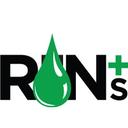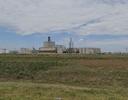Safety first, second, third, fourth
February 10, 2016
BY Ron Kotrba
Over the weekend a tragic accident at the Biocom Energia biodiesel plant in Valencia, Spain, claimed the lives of two workers and injured a third.
I feel deeply sorry for the victims and their families. Your loved one goes to work in the morning and when you part for the day, you don’t anticipate it being the last time you will ever see them. How awful that must be.
The company issued a statement Feb. 7 expressing its deepest condolences to the families of the victims, and its support and solidarity with the injured survivor.
Advertisement
Advertisement
The accident happened when the three workers were welding on top of an empty tank. The hot work was planned and communicated, according to Biocom Energia. All of the necessary permits were obtained and the company used “appropriate security protocol,” Biocom Energia relayed in the statement. Despite all of these measures, the company said “the container exploded for unknown reasons.”
Even though Biocom Energia said the container exploded for unknown reasons, it stated the causes of the incident are known, and it is working intensively on the inquiry in order to clarify the reasons for the incident. Biocom Energia is making available all the information needed by the Valencian Institute for Safety and Health at Work and other organizations investigating the accident.
I have been with Biodiesel Magazine for more than a decade covering this industry, writing countless articles on safety (and the lack thereof), and I can’t tell you how many similar unfortunate incidents I have seen in that time. These types of explosions are often the result of highly volatile methanol fumes still resident in “empty” tanks.
Advertisement
Advertisement
And we have seen and heard about other accidents at biodiesel plants, some for instance where plastic tanks coupled with out-of-code electrical work and fiberglass instead of foam insulation fueled fires out of control, putting workers and nearby residents at unnecessary risk.
How many times must these accidents occur before people know and understand the risks, and mitigate them soundly through proper procedures and equipment? One more time is 100 too many.
The biodiesel industry must put safety first, second, third, fourth…all the way down the line to protect its workers and communities, and reclaim headlines back from these tragic accidents in order to shift attention onto the myriad of positives this fuel—this industry—can achieve.
Related Stories
Biodiesel capacity in the U.S. and Canada dipped slightly stable in 2024, with several renewable diesel producers reporting headwinds and lower margins alongside a drove of SAF projects in various stages of development.
The IEA’s Task 39 group has new research regarding the development and status of the sustainable aviation fuel industry.
The U.S. EPA on Nov. 16 released updated RIN data, reporting that nearly 2.11 billion RINs were generated under the RFS in October, up from 1.81 billion generated during the same month of last year.
Conestoga to host SAFFiRE cellulosic ethanol pilot plant
Conestoga Energy and SAFFiRE Renewables LLC announced on Nov. 16 their agreement for Conestoga to host SAFFiRE’s cellulosic ethanol pilot plant at Conestoga’s Arkalon Energy ethanol facility in Liberal, Kansas.
Officials at Calumet Specialty Products Partners L.P. discussed the company’s proposed plans to boost sustainable aviation fuel (SAF) production at its Montana Renewables biorefinery during third quarter earnings call, held Nov. 9.
Upcoming Events










